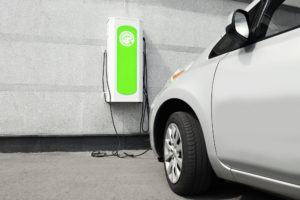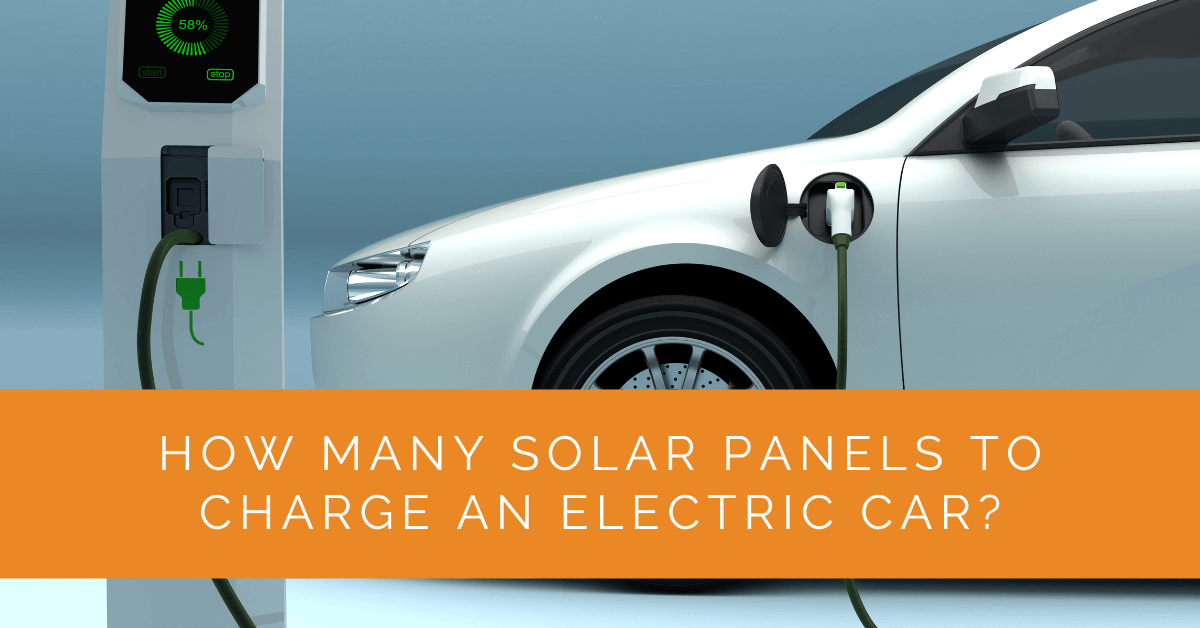Electric vehicles (EVs) are gaining popularity due to their environmental benefits and cost savings. Discover the advantages of charging your EV with solar power and learn how to determine the number of solar panels needed for efficient and sustainable EV charging.
Contents
- 1 Key Takeaways
- 2 Calculating Solar Panel Requirements
- 3 Sizing a Solar Panel System for EV Charging
- 4 Integration of EV Chargers and Solar Panels
- 5 Financial Considerations and Incentives
- 6 Case Study: Optimizing Solar Panel Systems for Electric Vehicle Charging
- 7 Expert Insights From Our Solar Panel Installers About Charging an Electric Car with Solar Panels
- 8 Experience Solar Excellence with Us!
- 9 Conclusion
Key Takeaways
- Assess your EV’s charging requirements, solar potential, and energy consumption to determine the number of solar panels needed for efficient charging.
- Consider factors such as solar panel output, system sizing, and compatibility with EV chargers to optimize the integration of solar panels and EV charging.
- Explore financial incentives, calculate potential savings, and consider the long-term return on investment to make informed decisions about powering your electric car with solar energy.
Calculating Solar Panel Requirements
Determining the number of solar panels required to charge an electric car involves a comprehensive calculation process. Several key factors influence the requirements, making it crucial to assess various aspects.
Factors Affecting Solar Panel Requirements
Numerous factors impact the number of solar panels needed for efficient charging. These include the energy consumption of the electric vehicle, charging efficiency, available sunlight hours, panel capacity, and desired charging time. Considering these factors, you can accurately calculate the solar panel requirements for your EV charging needs.
Evaluating EV Charging Efficiency and Energy Consumption
Efficiency plays a significant role in the EV charging process. Understanding the charging efficiency of your electric vehicle charger and your specific EV model’s energy consumption is vital. This information allows for a more precise estimation of the energy required for charging and subsequently helps determine the number of solar panels needed.
Assessing Solar Energy Generation and Availability
The availability of solar energy plays a crucial role in determining the number of solar panels required. Assessing solar energy generation potential involves evaluating geographical location, local climate conditions, shading, panel orientation, and tilt angle. Considering these factors, you can optimize solar energy generation and accurately estimate the number of panels needed to meet your EV charging demands.

Sizing a Solar Panel System for EV Charging
Properly sizing a solar panel system is essential to ensure adequate energy production for charging your electric vehicle. Various considerations come into play when determining the size of the system.
Understanding System Sizing Terminology
To accurately size a solar panel system for EV charging, it’s essential to understand relevant terminology. Familiarize yourself with kilowatts (kW), kilowatt-hours (kWh), and capacity factors. This understanding will facilitate the sizing process and help you make informed decisions.
Estimating Solar Panel Output and Energy Generation
Determining the solar panel output and energy generation potential is a critical step. Consider the efficiency rating and capacity of the panels, as well as the average daily sunlight availability. These factors will enable you to estimate the amount of energy your solar panel system can generate, aiding in determining the appropriate number of panels for EV charging.
Achieving Balance: Solar Panel Capacity and EV Charging Requirements
Achieving the right balance between the capacity of your solar panel system and your EV charging requirements is essential for efficient charging. Consider your average daily energy consumption, EV charging patterns, and storage capacity (if applicable). Balancing these factors ensures the optimal utilization of solar energy for EV charging.
Integration of EV Chargers and Solar Panels
Efficiently integrating EV chargers with solar panels allows for seamless and sustainable charging. Understanding the different aspects of this integration is crucial.
Types of EV Chargers and Their Compatibility
Explore the various EV chargers available, such as Level 1, Level 2, and DC Fast Charging, and assess their compatibility with solar panel systems. Consider factors such as charging speeds, power requirements, and compatibility with your specific EV model. This evaluation ensures the selection of the appropriate charger that aligns with your solar-powered EV charging setup.
Smart Charging Solutions and Load Management
Smart charging solutions offer advanced capabilities for optimizing the use of solar energy in EV charging. Explore technologies like load management techniques, time-of-use tariffs, and smart charging controllers. These solutions enable efficient solar energy utilization and can help reduce costs associated with charging your EV.
Evaluating EV Charging for Tesla and Other Models
If you own a Tesla or another specific EV model, it’s essential to consider unique charging requirements. Explore the specific charging options and recommendations provided by the manufacturer, such as Tesla’s Supercharger network or Tesla Wall Connectors. Understanding the compatibility and charging specifications specific to your EV model will guide you in effectively integrating it with your solar panel system.

Financial Considerations and Incentives
Financial factors are crucial when installing a solar panel system for EV charging. Evaluating the costs and available incentives can help make an informed decision.
Assessing the Cost of Solar Panel Installation
When determining the financial feasibility of a solar panel system, it’s essential to assess the overall installation cost. Consider factors such as equipment, labor, permits, and any additional components required for integrating the system with EV charging. Obtaining multiple quotes and exploring financing options will assist in making an informed decision.
Potential Savings and Return on Investment
Investing in a solar panel system for EV charging offers potential long-term savings. Calculate the potential savings by considering the avoided electricity costs of charging your EV from the grid. Additionally, estimate the return on investment (ROI) based on your location, solar potential, and electricity rates. These calculations provide insights into the financial benefits of powering your EV with solar energy.
Federal and Local Incentives for Solar and EV Charging
Research federal and local incentives available for solar panel installations and EV charging. Tax credits, rebates, grants, or other incentives can significantly reduce the upfront costs and enhance the financial viability of your solar-powered EV charging solution. Understanding and leveraging these incentives can further improve the financial outlook of your project.
Case Study: Optimizing Solar Panel Systems for Electric Vehicle Charging
Background
At Solar Panels Network USA, we frequently assist homeowners in transitioning to sustainable energy solutions, including charging their electric vehicles (EVs) with solar power. One of our clients recently sought our expertise to determine the optimal number of solar panels required to efficiently charge their EV, aiming to reduce their carbon footprint and achieve energy independence.
Project Overview
The client owned a mid-sized electric vehicle with a daily driving range of approximately 30 miles. They wanted to install a solar panel system capable of generating sufficient energy to fully charge their EV while also considering potential future energy needs.
Implementation
Initial Assessment
- Energy Consumption Analysis: We began by analyzing the energy consumption of the client’s EV. Based on the vehicle’s specifications and the client’s driving habits, we estimated that the EV required around 10 kWh of energy per day.
- Solar Energy Potential: Next, we assessed the solar energy potential of the client’s location. This involved evaluating the average daily sunlight hours, the orientation and tilt of the roof, and any potential shading from nearby structures or trees. The location received an average of 5 peak sunlight hours per day, making it well-suited for solar energy generation.
Calculating Solar Panel Requirements
System Sizing: To determine the number of solar panels needed, we calculated the total energy generation required:
- Daily Energy Requirement: 10 kWh
- Average Sunlight Hours: 5 hours/day
- Required Solar Panel Output: 10 kWh / 5 hours = 2 kW
Considering the efficiency and output of typical solar panels, we recommended installing a system with a total capacity of approximately 2.5 kW to account for potential energy losses and seasonal variations.
- Solar Panel Selection: We selected high-efficiency solar panels with a capacity of 300W each. To meet the required system size, the client needed approximately 9 panels (2.7 kW total capacity).
Integration with EV Charger
- Charger Compatibility: The client opted for a Level 2 EV charger, which offers faster charging times compared to Level 1 chargers. We ensured that the selected solar panel system and the charger were compatible and could efficiently work together.
- Smart Charging Solutions: To optimize energy usage, we integrated a smart charging controller. This device allowed the client to schedule charging times, taking advantage of peak sunlight hours and reducing reliance on grid electricity.
Results
The installed solar panel system successfully generated enough energy to meet the client’s daily EV charging needs. The smart charging solution further enhanced efficiency by optimizing energy usage and minimizing costs. The client reported a significant reduction in their electricity bills and expressed satisfaction with their contribution to environmental sustainability.
Summary
This case study demonstrates the importance of a comprehensive approach to sizing and integrating solar panel systems for EV charging. By assessing energy consumption, solar potential, and compatibility with charging infrastructure, Solar Panels Network USA provided a tailored solution that met the client’s needs. The project highlights the benefits of using solar energy for EV charging, including cost savings, energy independence, and reduced carbon emissions. Through careful planning and expert execution, we help our clients embrace sustainable energy solutions and contribute to a greener future.
Expert Insights From Our Solar Panel Installers About Charging an Electric Car with Solar Panels
Determining the right number of solar panels for EV charging involves understanding your car’s energy consumption and daily driving habits. This ensures you have enough solar power to meet your needs efficiently.
Senior Solar Technician
Integrating EV chargers with solar panels requires careful planning. The type of charger, solar panel output, and energy storage solutions all play a role in creating a seamless and sustainable charging system.
Lead Installation Specialist
Financial incentives and potential savings are significant factors. By taking advantage of federal and local incentives, you can reduce the upfront costs and see a quicker return on investment for your solar-powered EV charging setup.
Solar Maintenance Expert
Experience Solar Excellence with Us!
Trust in Solar Panels Network USA, where our seasoned experts deliver top-quality solar solutions for homes and businesses nationwide. With a legacy of countless successful installations and a commitment to sustainable energy, we’re your reliable partner in the solar journey. Ready for a brighter, eco-friendly future? Call us now at (855) 427-0058 and harness the power of the sun!
Conclusion
Harnessing solar energy to charge your electric car offers numerous advantages, including reduced carbon emissions, cost savings, and energy independence. By understanding the factors involved in sizing a solar panel system for EV charging, optimizing solar energy generation, and considering financial incentives, you can power your EV sustainably and efficiently. Embrace the clean and renewable future of transportation by adopting solar-powered charging solutions.
Remember to consult with solar and EV charging professionals to ensure proper system design, installation, and compatibility with your specific requirements.
About the Author
Solar Panels Network USA stands at the forefront of solar energy solutions, driven by a team of seasoned solar engineers and energy consultants. With over decades of experience in delivering high-quality solar installations and maintenance, we are committed to promoting sustainable energy through customer-centric, tailored solutions. Our articles reflect this commitment, crafted collaboratively by experts to provide accurate, up-to-date insights into solar technology, ensuring our readers are well-informed and empowered in their solar energy decisions.

